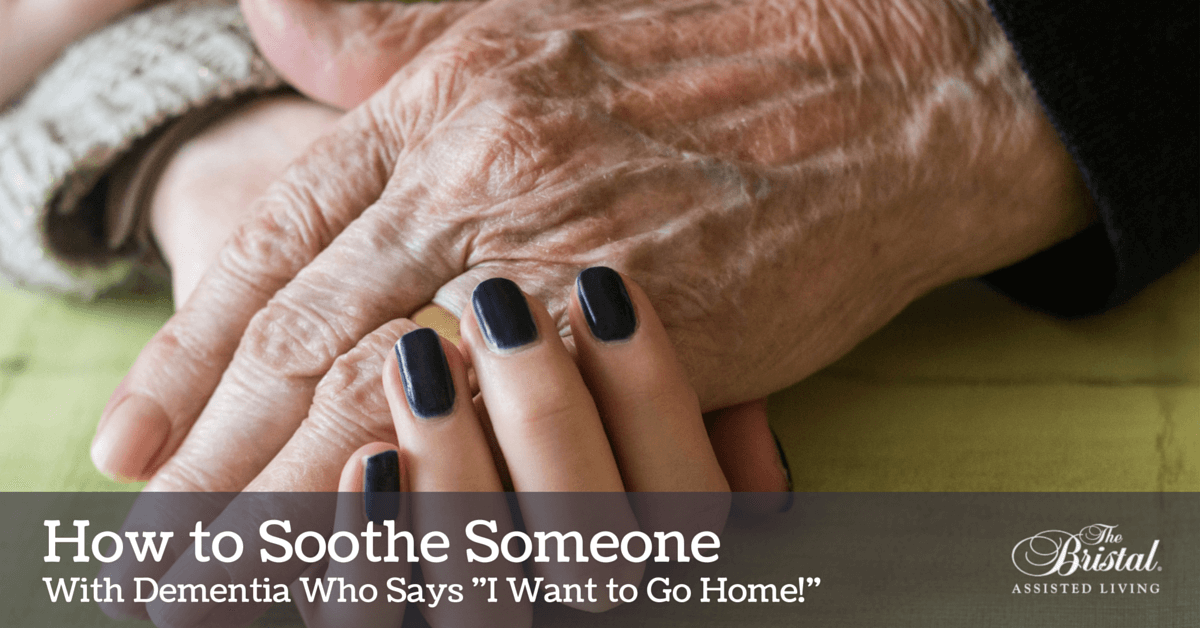How do you soothe someone with dementia who says “I want to go home?” This refrain, common among people with dementia, can perplex family and friends, especially if the person is already at home. What does the person mean, and what are some appropriate ways to respond? Expert advice follows:
What Does “I Want to Go Home” Mean?
According to Paula Spencer Scott, the author of Surviving Alzheimer’s: Practical tips and soul-saving wisdom for caregivers, “I want to go home” is “an expression of discomfort.” She explains: “At this point in dementia, memories of the distant past are strongest and are often happy ones associated with good feelings. Wanting to go “home” is often an expression of longing for that security.”
Joanne Koenig Coste, author of Learning to Speak Alzheimer’s, takes a similar view. She once explained in an interview that “I want to go home” might very well mean “I want you to hug me and make me feel at home, that I’m in a place where I’m secure.”
How Should You Respond?
Oftentimes, this is not a situation where logic will work, so it may be the wisest choice to avoid arguing your loved one or correcting him or her by saying, “but you are at home,” or “this is your home now.” Instead, try one of these soothing techniques:
• Go with the flow. It may seem odd, but improvisational techniques can be helpful. Two guiding principles of these techniques are 1) to say “yes,” which provides affirmation, and 2) to continue the conversation. For example, you could respond, “OK, but let’s [fill in the blank] first.”
• Redirect your loved one’s attention. Another approach is to steer the conversation in a slightly different direction. For instance, Scott suggests saying, “You really miss home. Tell me about home.” She also recommends encouraging your loved one to talk about “favorite activities or places back home.” This may be a good time to bring out photos of “home” for perusal, an activity that not only provides positive reinforcement, but also deflects attention from the original focus and shifts it to happy memories. Another means of distraction is to bring your loved one to look at something nearby, e.g., paintings, animals, a garden, etc.
• Determine if the behavior results from sundowning, and respond accordingly. Sundowning is unease or agitation that typically manifests itself late in the day. Experts have identified several effective methods of coping with its symptoms.
As mentioned earlier, the “home” your loved one is referring to may not exist. Therefore, focus on the feelings behind the words, and do your best to soothe your loved one.



